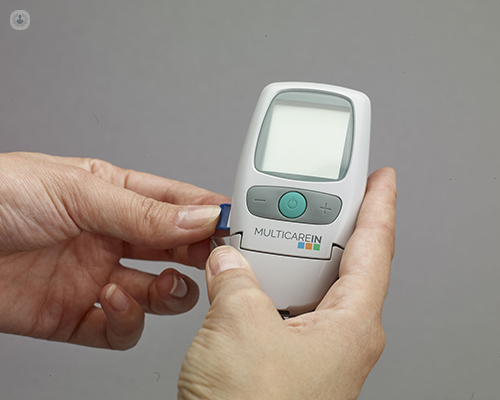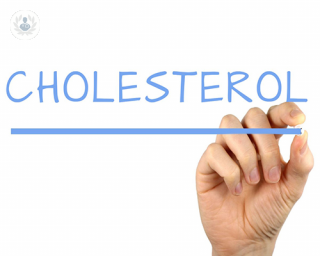High triglycerides
What are triglycerides?
High triglycerides are a type of lipid disorder. Triglycerides are fats found in the blood. They are produced in the liver, and found in foods we consume. Any calories not needed after we eat are converted into triglycerides and stored in fat cells, to be later released into the blood and used as energy.
Our body needs triglycerides as a way of storing energy, but too much can be a bad thing for the body and can lead to obesity and cardiovascular disease.

Are triglycerides and cholesterol the same thing?
No. Triglycerides and cholesterol are similar in that they are both lipids (fats) that circulate in our blood, but they serve different purposes. Triglycerides are used by the body to give us energy. In contrast, cholesterol is produced by the liver and is used to build cells, as well as vitamins and hormones.
What are the different levels of triglycerides?
Your doctor can run tests on your blood to determine the level of triglycerides. The level is typically split into three different categories:
- Moderate hypertriglyceridemia: 150–499 mg/dl
- Severe hypertriglyceridemia: 500 mg/dl or more
- Very severe hypertriglyceridemia: 880 mg/dl or more
When fasting, the triglyceride levels in the blood should be less than 150mg/dl.
What conditions do high triglycerides cause?
High levels of triglycerides don’t cause symptoms by themselves, but they can lead to more serious conditions. Very high levels of triglycerides can cause pancreatitis, an inflammation of the pancreas, causing abdominal pain, fever, nausea and vomiting, and loss of appetite. If it is not treated, pancreatitis can be life-threatening.
High levels of triglycerides can also be a signifier of high cholesterol, which can lead to cardiovascular disease, which is caused by the build-up of fatty deposits in the veins and arteries. High triglycerides can also lead to diseases such as carotid artery disease, coronary artery disease, peripheral artery disease and strokes.
Other conditions that may be linked to high triglycerides are diabetes, hypothyroidism, kidney disease and metabolic syndrome.

What are the signs of high triglycerides?
Signs that you may have high levels of triglycerides include: high blood pressure, fat around the belly and high blood sugar levels. High triglycerides can lead to metabolic syndrome, a collection of related metabolic disorders, that increase your chances of developing cardiovascular disease, diabetes, stroke, and a heart attack.
Around 23% of adults are affected by metabolic syndrome.
How can you lower triglyceride levels?
Positive health and lifestyle changes will improve the levels of triglycerides in your body. Limiting the amount of fat and sugar you consume is very important. You should avoid foods that are processed and contains lots of refined sugars and trans and saturated fats.
A heart-healthy diet can help in lowering your triglyceride levels. This diet is based on eating plenty of fruit and vegetables, nuts, whole grains and lean meat and fish. It is also very important to become more active to burn off the triglycerides stored as fat for energy.
Limiting alcohol intake is also a good way to lower triglycerides. This is because the liver breaks down the alcohol we drink into triglycerides and cholesterol. Sif you drink too much, or your triglyceride levels are too high, you may develop fatty liver disease.
Quitting smoking can help reduce levels of triglycerides, as smoking can cause the body to store fat more readily.

Are there medications available to treat high triglycerides?
There are several different medications and supplements that can help to lower triglycerides. These include:
- Fibrates, such as fibricor, lopid and tricor. These medications are also used to treat high cholesterol.
- Nicotinic acid: this is an acid also known as vitamin B3, one of the B-complex vitamins.
- Omega-3s: these are fats that have can prevent stroke, heart disease and autoimmune diseases such as lupus and arthritis. Your doctor may prescribe you high-dose Omega-3s for high triglycerides.
All of these medications should be taken under your doctor’s supervision.



